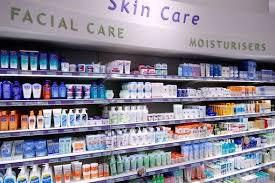
Beauty Is My Passion
March 28 2017

What could be worse than having acne breakout?
A more severe acne.
Cystic acne, better known as the gravest acne problem, overshadows the typical one because it causes a deeper harm on skin tissue. Also identified as nodulocystic acne, they form as inflammations in the face which is filled with pus. It originates from the inner layer of the skin because of a certain bacteria called ‘P. Acnes,’ and worsens, surprisingly, with the help of the white blood cells. Unlike the common acne, cystic acne treatments are not designed for erasing acne scars.
How is it treated?
There are many available remedies in the market for cystic acne; some are prescribed drugs while others are over-the-counter ones. Compared to the acne scar removal treatments, these solutions are aimed to kill the bacteria or to prevent the pores from clogging.
Below are the most popular samples of the latter kind of remedy. Get to know how they work and what their side effects are before buying them.
Benzoyl peroxide.
From the name itself, it is a compound that contains oxygen. Now bear in mind that bacteria ‘P. Acnes’ cannot live with oxygen, the reason why they live inside your clogged pores. Therefore, Benzoyl peroxide combats with cystic acne by exposing them to oxygen. A product user review said that Benzoyl peroxide could really bleach your hair and your clothes. Other effects cited were dryness of skin and stinging sensation. Many users also claim that it would take about two months before seeing results.
Salicylic acids.
This product acts as an acne treatment such that it promotes the shedding of your inner skin cells, thus, preventing the pores from clogging. Salicylic acid belongs to the Beta hydroxy acids and is lipid-soluble. It contains an exfoliating substance that allows it to penetrate deeper and to remove dead skin cells. Just like Benzoyl peroxide, it can cause a stinging sensation. Although there were researchers that claimed Salicylic acids reduces skin irritation, users, and some professionals claim that it causes skin irritation.
Lactic and Glycolic acids.
These two items belong to the Alphahydroxy acids; they are water-soluble substances and are carboxylic acids. Just like the Beta hydroxy acids, these acne treatments play the role of stimulants for the exfoliation of dead skin cells.
Sulfur.
Probably the oldest recognized product for cystic acne treatment, sulfur has the same process with the two previously mentioned products. Furthermore, it lessens oil secretion from the glands and thereby reduces the chances of pore clogging and bacterial growth. Identified side effects of using sulfur are dryness, irritation, and redness of the skin.
Cystic acne is far more problematic that the normal ones and they create more chances of frustrations and embarrassments to people. Acne treatment methods of eliminating them are therefore more susceptible to abuse. Different over-the-counter products, to be specific, are being used rampantly by users without weighing in the possible side effects of excessive use.
Human skin is sensitive, way too sensitive for some people. Consumers should be responsible for buying and applying readily available products in the stores since most of them are acid based.